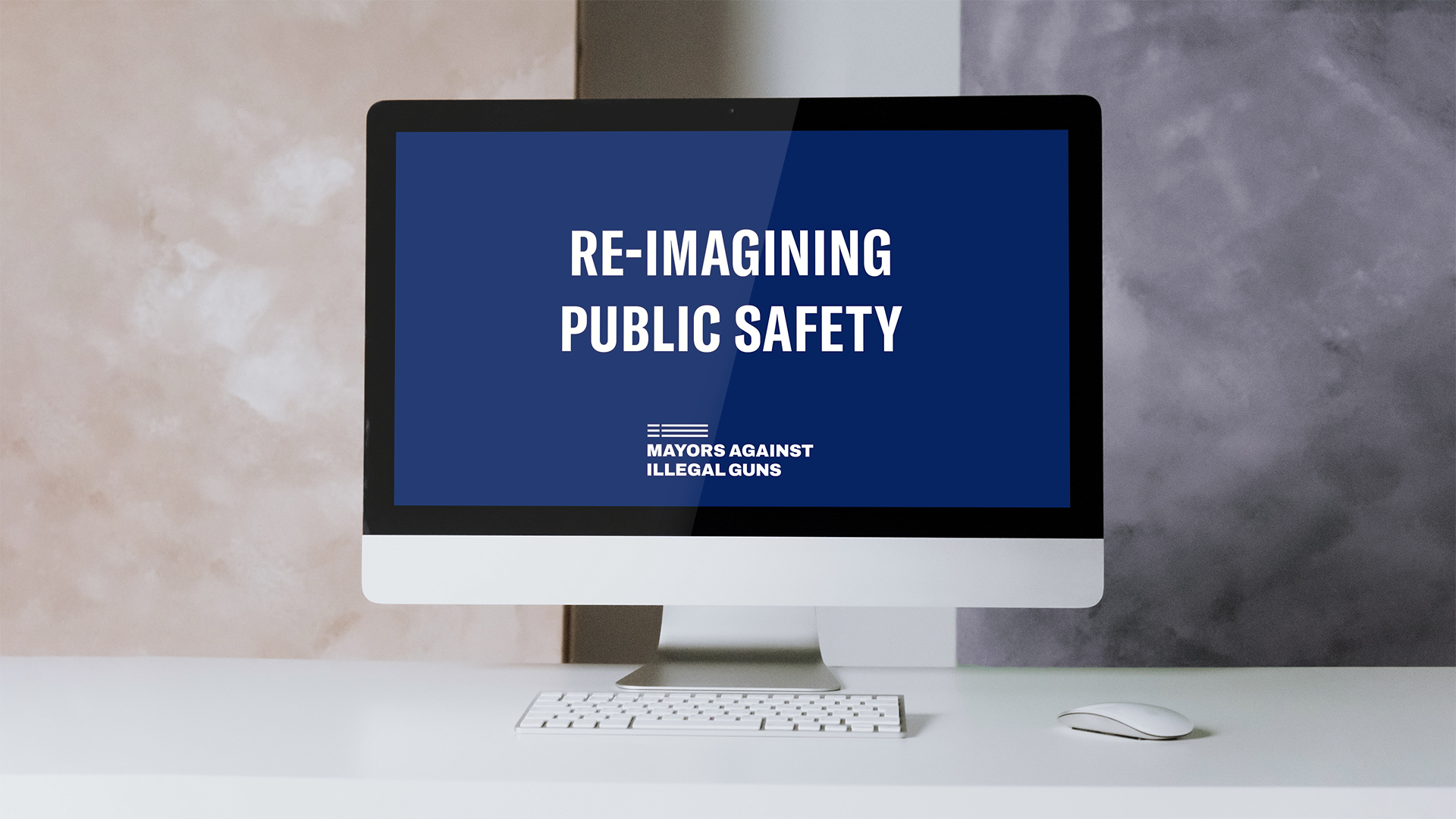Mayors Against Illegal Guns University

Mayors Against Illegal Guns University is a quarterly web-based training program for mayors, their staff, and other municipal leaders on local gun safety and gun violence prevention efforts.
Upcoming Sessions
There are no upcoming sessions at this time.
Previously Recorded Sessions
These sessions are password protected for security purposes and available for MAIG members, their staff and other local officials. If you are a MAIG member and need the password, please send us a message.
Building Your City’s Gun Violence Data Capacity (03/20/2025)
Timely and accessible local gun violence data is vital. With it, police departments can make better decisions about when and where to deploy officers; community violence intervention programs can efficiently target and evaluate their efforts; and public health agencies can identify and improve upon the most relevant risk and protective factors. Yet, to-date, only 13 US cities publish local gun violence dashboards on at least a monthly basis.
Join us to learn about new tools for developing your city’s gun violence data capacity and hear first hand from city government, law enforcement, and CVI leaders who are leveraging data to keep their communities safe.
Reducing Violence Now: A Deep Dive into the Group Violence Reduction Strategy (01/30/2025)
Baltimore’s implementation of Group Violence Reduction Strategy (GVRS) has been transformative, resulting in historic reductions in homicides and nonfatal shootings. This strategy focuses on addressing those at the highest risk of violence, offering pathways to change while holding individuals accountable for their actions. This conversation will highlight the essential components of GVRS and how it fosters collaboration between community members, city leadership, and violence prevention experts.
Targeting the Source: Cities Taking Aim at Gun Violence Through Civil Litigation (12/14/2023)
City attorneys are often the front-lines for protecting their city’s residents from threats to public safety through the courts. But due to gun-lobby backed laws, the path to accountability is not always clear. This insightful MAIG U session, designed exclusively for city attorneys, highlights the creative approaches to civil litigation that have proven increasingly successful in holding bad actors in the gun industry accountable in courts, as well as guidance on how to build a successful case under the new state laws. The panel covers a range of topics from various stages of litigation, including identifying bad actors through publicly-available evidence, building complaints that survive motions to dismiss, working within restrictions on utilizing crime data, litigating under state and federal immunity laws, and overcoming challenges to jurisdiction.
Inside the Gun Shop: Firearms Dealers and their Impact (07/27/2023)
In 2022, there were nearly 78,000 licensed gun dealers in the US, more than all McDonald’s, Burger King, Subway and Wendy’s locations combined. This MAIG U session is an overview of Everytown’s latest report, “Inside the Gun Shop: Firearms Dealers and their Impact” that details the facts and realities of licensed gun dealers across the nation and further outlines the relationship between gun sellers and gun trafficking. The expert panel discusses major findings from the new FFL report and how cities, law enforcement, and elected officials can use this data to crack down on gun violence.
ATF Gun Trafficking Report (03/16/2023)
In Febuary 2023, the Bureau of Alcohol, Tobacco, Firearms and Explosives (ATF) released a new report that presents and analyzes data on “crime guns.” This report is a crucial tool in identifying the origins of crime guns. It has also revealed how quickly guns are trafficked into the wrong hands and used in crimes (“time-to-crime”), sometimes as quickly as three months. Emerging trends in the report paint a clear picture of the challenges cities and law enforcement tackle with ghost guns and glock switches. In this session of MAIG U, the expert panel discusses the major findings from the ATF report and how cities, law enforcement, and elected officials can use this data to crack down on gun trafficking.

